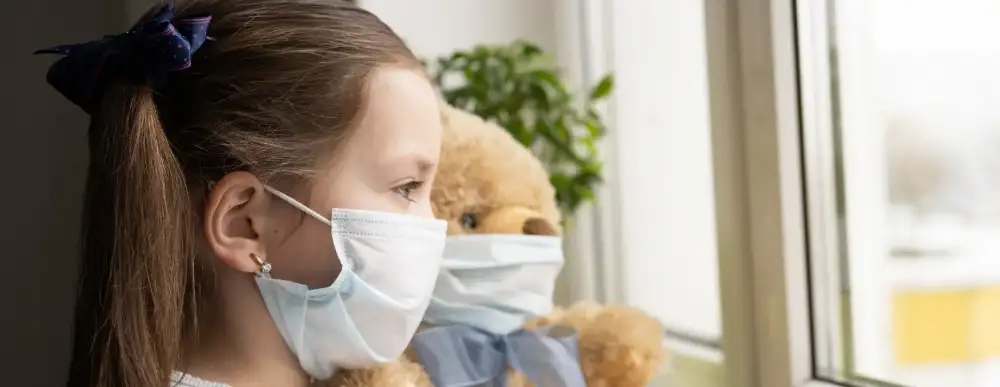While it is fair to say that coping with the pandemic has been stressful on all of us in our community, children are at particular risk of adverse effects on their mental health. There are challenges related to change in routines, virtual learning, fear of the virus, the world feeling out of control, loneliness from being away from friends and extended family members, and the stress felt from parents and caretakers because of economic concerns, among other factors.
While there is currently not a lot of information on how the pandemic is specifically affecting children’s mental health (because of the regency of the crisis), there is some data indicating increased emotional stress, anxiety, behavioral concerns, and depressive symptoms among school-aged children. The current mental health related challenges are particularly concerning for children who were already struggling before the beginning of the pandemic, making them at a higher risk now.
Part of this concern is related to access to mental health services, given that many services were either temporarily disrupted that may not have been accessible or viewed as favorable to children and families (e.g., telehealth services). For example, many children receive mental health services through school so when schools were shut down in the spring, it is reasonable to assume that there was disruption in the ability of some families to access services.
While there are many reasons to be concerned about our children’s mental health, the good news is that children are very resilient when faced with adverse events. We also know a great deal about how to decrease the chances of poor outcomes that may be related to the pandemic. Below are some tips that you can implement with your family to help strengthen both you and your child’s resiliency through these challenging times:
- Implement structure and routine: All our daily routines have been disrupted in one way or another over the last year, which can be stressful on the whole family. We know that children (and adults!) thrive when given routines and structure. Help to ease the current stress by creating routines for the whole family, such as having a consistent bedtime, an evening routine, consistent dinner times, etc.
- Continue treatment: It is important that both parents and children with preexisting mental health challenges continue with treatment. If you are concerned about going to a clinic because of COVID, talk to your provider about telehealth options. Telehealth is a great way to continue treatment without the concerns of spreading the virus. While it may take some getting used to, most people report that telehealth makes access to mental health services much easier. If children are not receiving services, talk to your child’s school counselor about a referral to a mental health professional. Don’t be afraid to ask for help for either yourself or your child.
- Maintain connections with others: Social distancing and quarantining has reduced the opportunities for social interactions; loss of these connections is particularly concerning for those children who are depressed or at risk for depression. Technology is a great way to help your children stay connected, both in keeping up with friends and family members. Instead of just a video call, try to plan some activities or games during a video chat to keep everyone engaged and entertained.
- Do something fun, helpful, or challenging: Planning activities during stressful times can provide feelings of pleasure and mastery and can help take children’s focus away from negative thoughts or worries. These activities can be learning how to bake, playing games, or volunteering to help others during the holiday season.
Dr. Coles is a licensed psychologist who works for Health West in the school-based mental health program.








